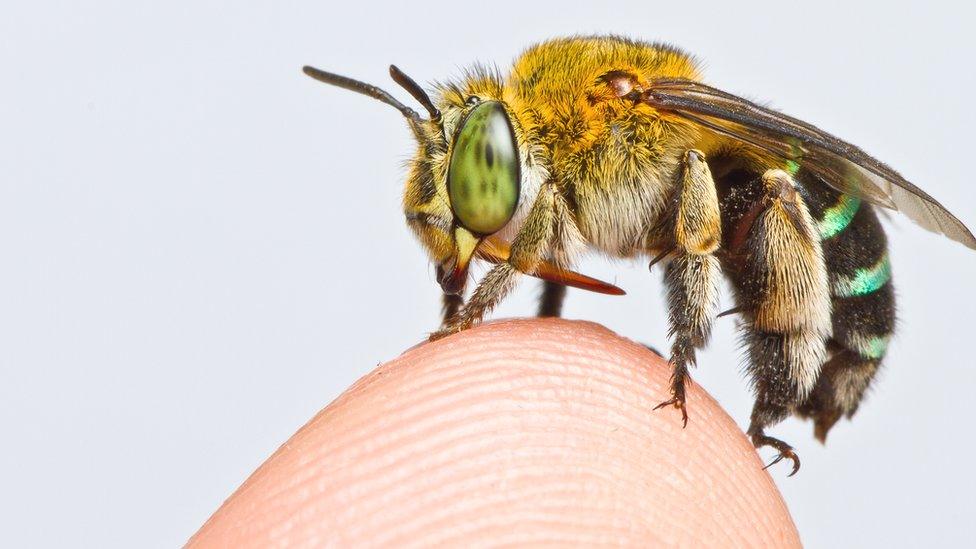Yorkshire reservoirs to play role in scheme to help bees
- Published
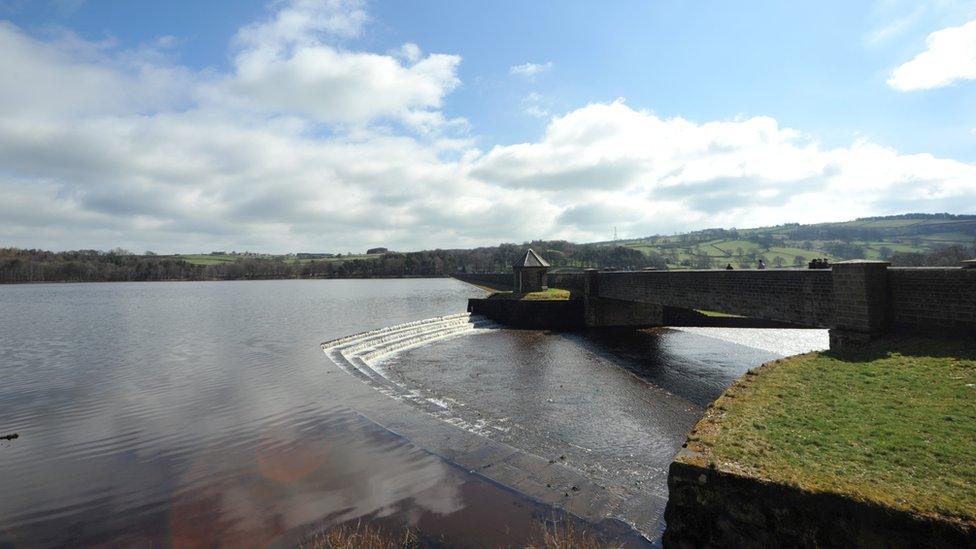
New habitats for pollinators will be created at reservoirs owned by Yorkshire Water
Six reservoirs have been chosen to play a role in a scheme to help reverse the decline of wild bees.
The Bee Together project aims to create a network of pollinator habitats stretching from Yorkshire to Lancashire.
It was established in response to a study by 50 conservation groups in 2016, external, which showed a decline in bees.
Yorkshire Water has provided £30,000 to create habitats at six of its reservoirs in the Yorkshire Dales.
The Yorkshire Dales Millennium Trust (YDMT) Bee Together project aims to create a network of bee habitats linked together through wildlife areas.
The YDMT's Catherine Mercer said the 2016 State of Nature report had shown 60% of bees and other pollinators were in decline.
"Bees continue to face a wide range of threats, from toxic pesticides to climate change, however the most significant reason for their decline is the loss of wildflower-rich habitats," she said.
"Projects such as this one are vital in reversing these declines, through engagement, education and practical conservation."
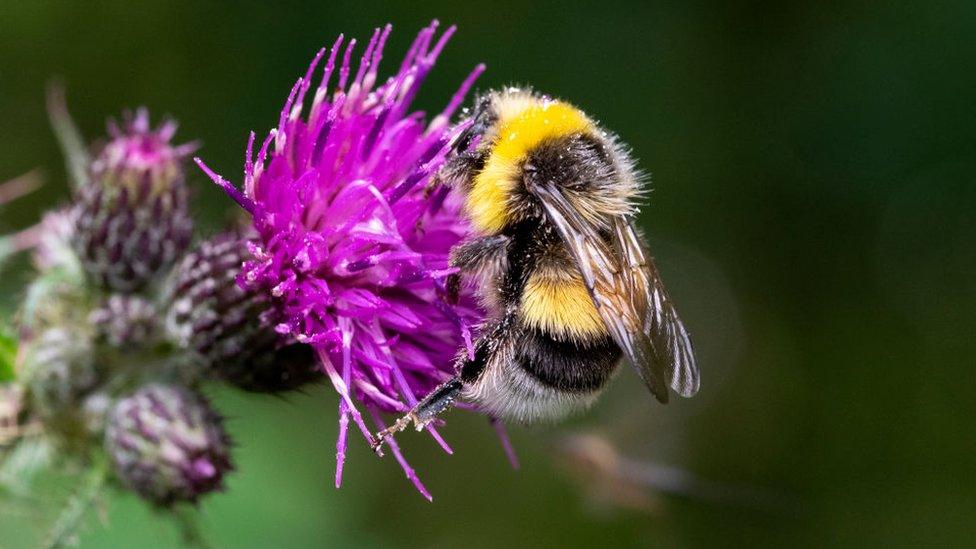
Conservation groups warned bees and other pollinators were in decline in a major study in 2016
Yorkshire Water said the new habitats would be created at its reservoirs at Fewston, Swinsty, Thruscross, Embsay, Grimwith and Barden.
They will form part of a so-called 'B-Line' from Leeds to Lancaster, which will link existing wildlife areas together by creating and restoring wildlife patches rich in wildflowers.
Yasmina Gallagher, from Yorkshire Water, said the company was pleased to be involved.
"Conservation efforts and improving biodiversity are key parts of our work and often go hand-in-hand with our role managing water catchments," she added.

Follow BBC Yorkshire on Facebook, external, Twitter, external and Instagram, external. Send your story ideas to yorkslincs.news@bbc.co.uk or send video here.
Related topics
- Published5 August 2021
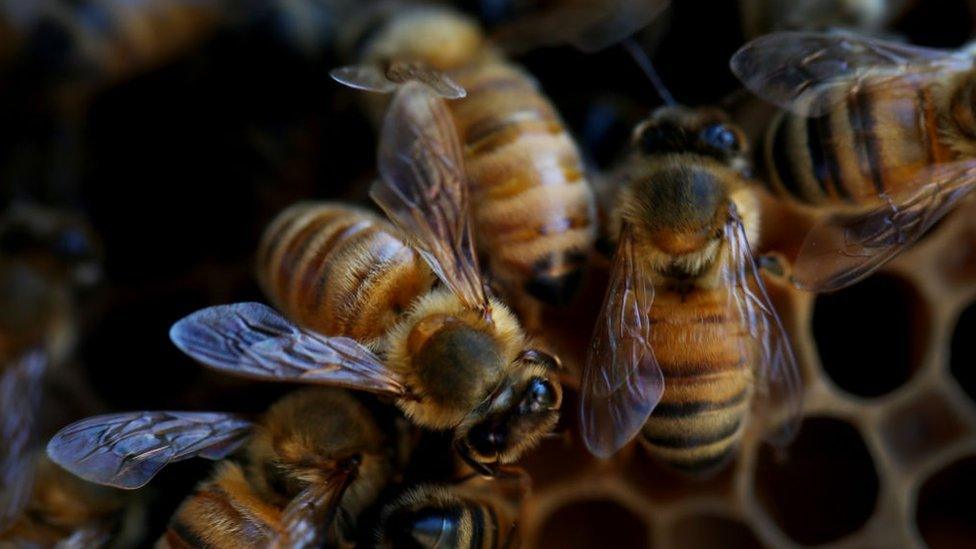
- Published13 May 2021
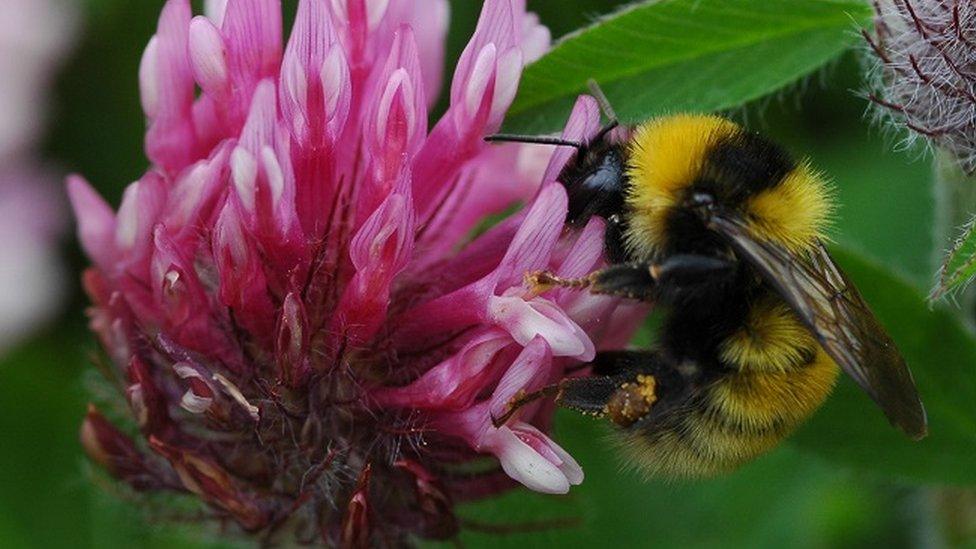
- Published3 March 2021
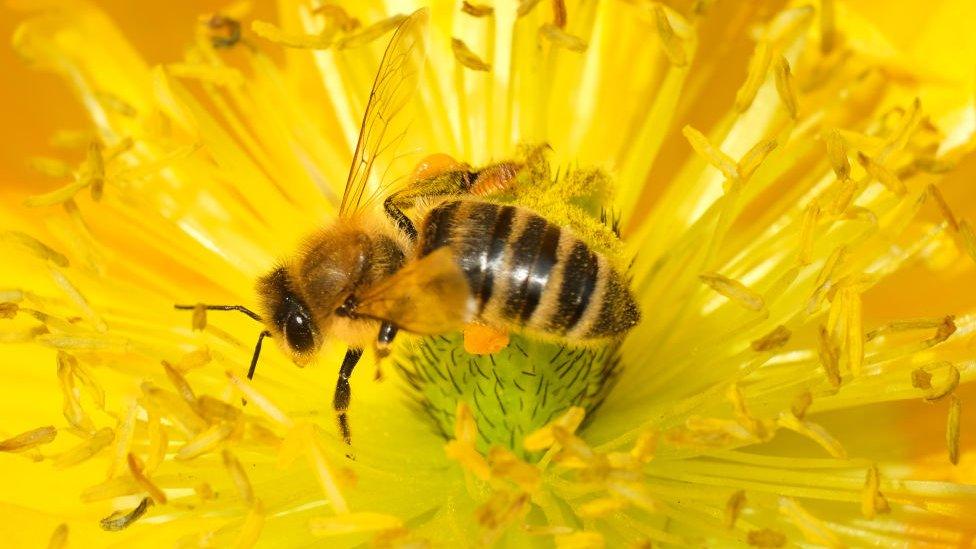
- Published20 November 2020
